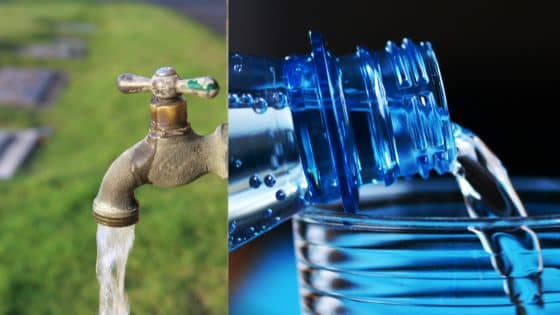All living beings need water to survive. Water makes up nearly 70% of the human body and has innumerable benefits for your mind, body, skin, and more. But, while most people won’t deny that water is an essential substance for all life, there is some uncertainty on what type of water is the best. The debate over whether mineral water in Dubai is preferable to tap water is one of the ongoing water-related controversies.
If you’re someone living in the UAE, you probably understand the importance of being the hydrated day in and out. That’s why you may find lots of UAE natural mineral water traders.
While most people know water intake’s importance, some are confused about the best type of water to drink. For that reason, we’ve put together this post to investigate the differences between mineral, distilled, and tap water to find out which one is the best choice for hydration.
Tap Water
Municipal water, also known as tap water, is sourced from wells, rivers, or reservoirs. Normally, this water is treated at a water plant before being piped into residential and commercial buildings.
There are several reasons why most UAE residents don’t drink directly from the tap. The tanks and water pipes in older buildings and homes can carry contaminants or bacteria, which may render the water unsuitable for drinking. Also, UAE’s main city Dubai doesn’t have natural rivers or streams from which drinking water can be sourced. The city’s only water supply comes from the sea. And to make it drinkable, the water is pulled from the sea and then desalinated – a filtration method that removes impurities – before flowing out of your taps.
Mineral Water
Mineral water (also known as spring water)is naturally-occurring water. Mineral water doesn’t go through chemical processing as tap water does. As the name suggests, mineral water contains minerals, including sulfur, magnesium, and calcium — all things good for you.
Natural mineral water is collected only from protected, natural, underground sources. This indicates the water does not undergo any chemical treatment and keeps its purity and minerals within it. Some naturally sourced mineral water examples are Zaku mineral water traders, the Oasis Water Company, Masafi Co., and Nestle Waters, among others.
-
Mineral Vs. Tap Water: The Differences
Everyone knows the importance of water and how essential it is for all of us. But whether drinking water straight from the tap or pre-packaged bottles has long been debated.
So, to help you understand the best option for your health, here are some details on the advantages and disadvantages of bottled water versus tap water.
-
Health Safety Between Tap And Bottled Water
People who claim the benefits of bottled water often worry that tap water can be easily contaminated and that one cannot verify its safety. However, the opposite is true. Due to strict laws in developed nations, tap and bottled water are generally equally safe.
Additionally, tap water typically contains trace amounts of chlorine to prevent bacteria from growing, while most bottled water lacks this. This means the longer the bottled water sits on a shelf, the more easily the bacteria can contaminate the water.
-
Bottled Vs. Tap Water Price
There is a clear price difference between bottled and tap water. Even though many bottled water brands are taken from the same sources as tap water, bottled water can cost much more than tap water. So, if convenience is your primary concern for buying bottled water, it is far more affordable to purchase a stainless-steel water bottle that you can refill at your convenience.
-
Environmental Impact Of Bottled Vs. Tap Water
The biggest advantage of using tap water instead of bottled water is that it helps reduce pollution. On the other hand, bottled water’s life cycle involves using fossil fuels, increasing global warming, and polluting the environment.
The Overall Benefits And Drawbacks Of Mineral Vs. Tap Water
Each water source has its benefits and drawbacks.
For instance, bottled water is almost always healthy and safe, with one of its major pros being providing safe drinking water to underdeveloped countries. Another benefit is that bottled water can be used in emergencies, are convenient on the go, and offer a range of tastes to meet consumer preferences. However, the main disadvantages of bottled water are its high price and negative environmental effects.
Tap water is usually just as safe and healthy as bottled water, especially in developed countries. The pros of tap water are its low cost and smaller environmental footprint. However, the cons include a higher possibility of contamination from external sources and the high price to governments to establish and maintain the necessary infrastructure.
To Conclude
As long as the water is safe and clean, you only need to ensure that you stay hydrated and regularly consume a good amount.
Choose your preference and look for a reliable water supply. Then consider checking out Swift Trading Company. They are all-natural products traders dealing in various essential products, including fruit syrups, crisps, roasted coffee, and mineral water.








